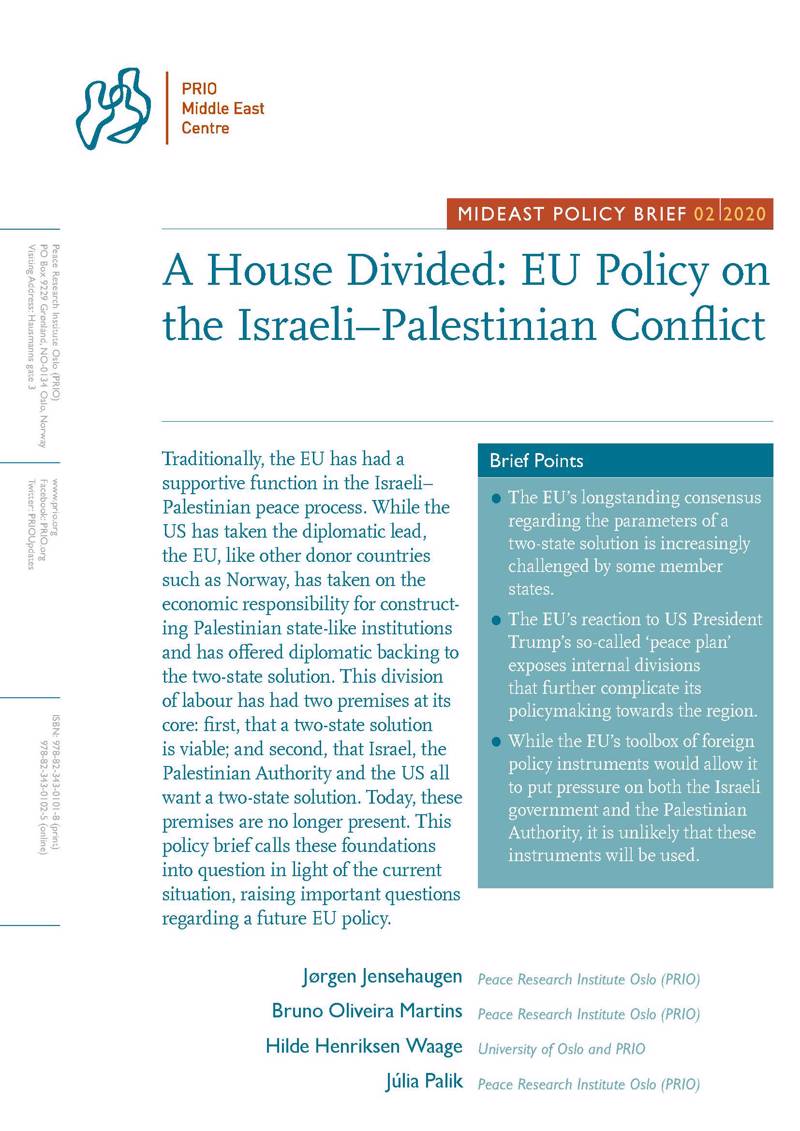
The MidEast Policy Brief series was launched in late 2019. The series aims to disseminate timely and relevant research to the wider public on topics relating to the MENA region, and provide research-based policy advice. Three policy briefs have been published in the series. The first assesses the viability of Kurdish and Palestinian quests for self-determination, the second lays out misconceptions about the Yemen War, while the third scrutinizes the foundations of the EU policy on the Israeli-Palestinian conflict.
Kurdish and Palestinian Quests for Self-Determination
Jørgen Jensehaugen and Pinar Tank address the viability of Kurdish and Palestinian quests for self- determination. In comparing the Kurds of the Northern Syrian enclaves of Rojava, represented by the Democratic Union Party (PYD), and the Palestinians, represented by the Palestinian Authority (PA), they find that nationalism and demands for independence are not static ideologies but rather negotiated through the "politics of the possible". This implies that the ideological positions of the Palestinians and Syrian Kurds on statehood and autonomy ought to be malleable. As non-state nationalist actors operating in a state-based system, both the Palestinians and the Kurds adapt their ideologies and strategies for national independence to shifting regional dynamics. Download the MidEast Policy Brief here.
The Yemen War: Addressing Seven Misconceptions
Júlia Palik and Ibrahim Jalal lay out the seven most common misconceptions about the Yemen War, which they see as reflective of a lack of transparency from aid organizations and a lack of access to information from the government of Yemen and from other conflict parties. The war has evolved from a conflict between the government and the Houthis into a multi-faceted conflict, which they argue will require a multi-pronged approach to resolve. There is a need to engage more women and youth in peacebuilding, as well as to demand accountability from state and non-state actors alike, particularly regarding data collection, aid expenditures, and inclusiveness of peace talks. Download the MidEast Policy Brief here.
A House Divided: EU Policy on the Israeli-Palestinian Conflict
Jørgen Jensehaugen, Bruno Oliveira Martins, Hilde Henriksen Waage and Júlia Palik argue that the EUs longstanding policy on the Israeli-Palestinian Conflict, based on a two-state solution, is increasingly being challenged by some member states. There have always been different positions among the member states, but nobody has openly opposed the EU's support for a two-state solution. However, in recent times this longstanding agreement has been eroding within the EU, creating an additional layer of difficulty for EU policymaking, which is to Israel's advantage. While the EU's toolbox of foreign policy instruments would allow it to put pressure on both the Israeli government and the Palestinian authority, it is unlikely that these instruments will be used. Download the MidEast Policy Brief here.





